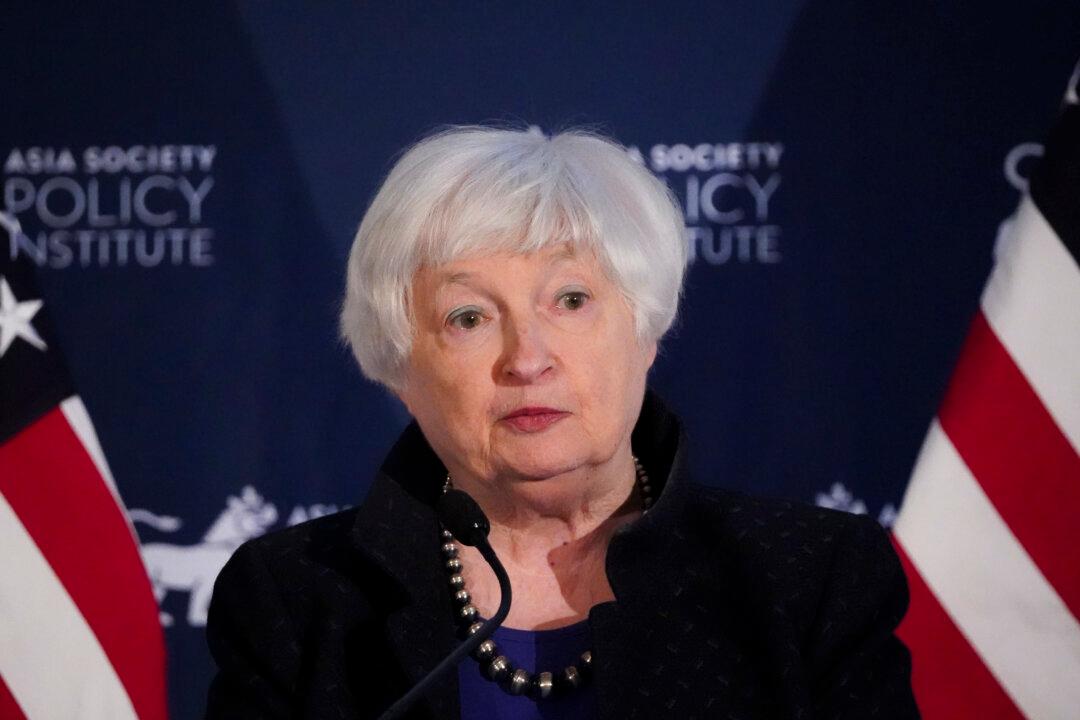The United States will not compromise on national security interests and human rights in its pursuit of a “healthy” economic relationship with communist China, Treasury Secretary Janet Yellen said on Thursday.
Her remarks came ahead of a planned meeting between President Joe Biden and Chinese Communist Party (CCP) leader Xi Jinping at the Asia-Pacific Economic Cooperation forum in San Francisco later this month.





